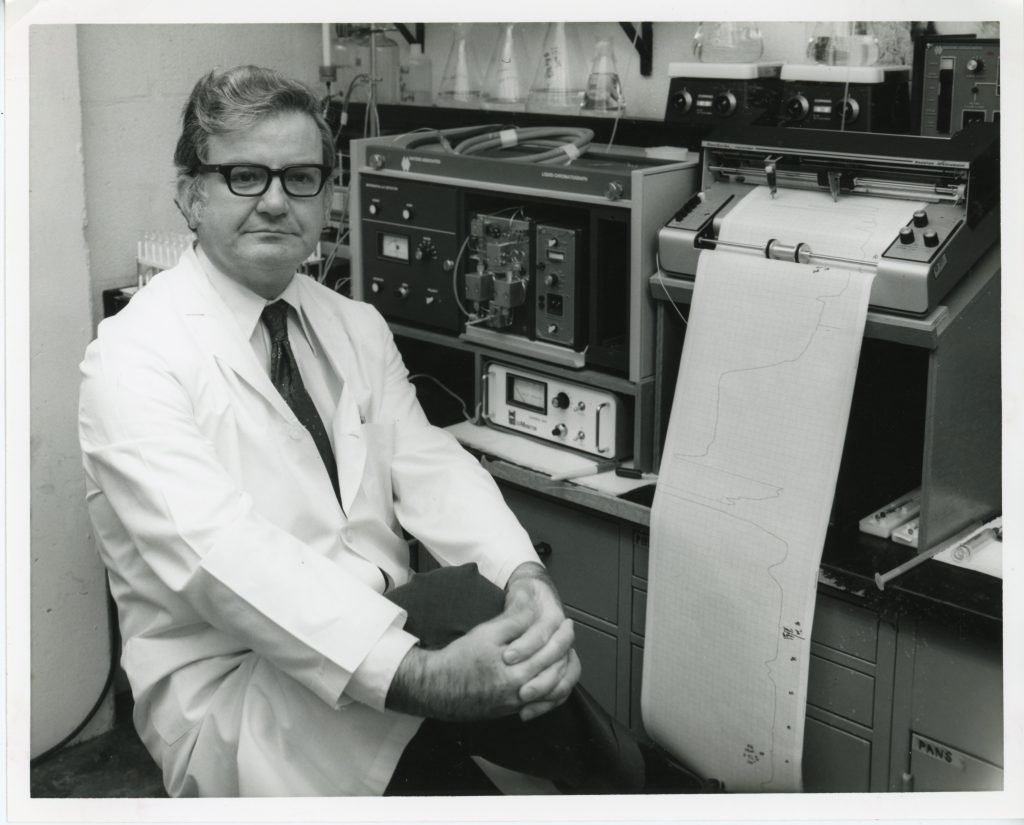
The late Wallace Brockman, a key member of Southern Research’s pioneering cancer research team, will be remembered at a special service in Birmingham on Saturday.
A memorial service for Brockman, who died in Virginia in April at age 91, is set for 3 p.m. at First Presbyterian Church at 2100 Fourth Ave. North in downtown Birmingham.
In the early 1950s, Brockman, who received a doctorate in organic chemistry from Vanderbilt University, joined the group of Southern Research scientists assembled by Howard Skipper who developed the initial principles of cancer chemotherapy.
Brockman was one of the first researchers to tackle the problem of why some cancer cells are able to resist chemotherapy drugs. He reasoned that biochemical differences in resistant cells act as a shield for the cancer, and he devoted years to identifying these differences.
In 1963, Brockman, then head of the Drug Resistance Section at Southern Research, published a book chapter that outlined the mechanisms of resistance recognized at that time. Cancer researchers have praised the work as “an elegant biochemical framework for resistance” and “a highly prescient synopsis of resistance mechanisms.”
With these molecular-level mechanisms in mind, the team at Southern Research began experimenting with combinations of anticancer drugs. They showed that cancer resistant to one class of drugs could be killed by another. Today, cancer is generally treated with combination chemotherapy.
Brockman continued to contribute to the scientific community’s understanding of the biochemical action of antitumor and antiviral drugs until he retired from Southern Research in 1990.
“Dr. Brockman’s scientific work at Southern Research significantly advanced our knowledge of how to effectively target cancer cells resistant to treatment,” said Art Tipton, Ph.D., president and CEO. “His insights into the mechanisms of resistance laid a foundation for life-saving therapeutic approaches.”
Brockman is survived by his wife of 67 years, Jean Early Brockman; two daughters, Alison Brockman Booth and Anne Brockman Hoos; and two granddaughters, Liza and Meredith Hoos. Read an obituary.
In lieu of flowers, donations may be made in his name to The American Cancer Society.




